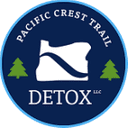Detoxification is an essential step when recovering from addiction. It serves as the foundation upon which all subsequent treatments and therapies are built. It's a process designed to safely manage the acute physical symptoms of withdrawal from drugs or alcohol.
However, one of the most common concerns for individuals seeking this crucial help is the cost. Detox programs can be expensive, and the financial aspect often becomes a significant barrier for many. In this discussion, let us help you explore various ways to pay for detox.
Source: Pacific Crest Trail Detox
What Costs Are Associated with Detox?
When considering the pathway to sobriety, you need to understand the financial implications of detox services. The cost of detox programs varies, typically ranging from a few hundred to several thousand dollars. The severity of treatment and other variables contribute to this broad spectrum for most people.
Typical Cost Range
The cost of detox services largely depends on the specifics of the program and the amenities provided. On the lower end of the spectrum, outpatient detox programs or the cheapest medical detox programs can cost between $1,000 and $1,500 at most. These programs are suitable for individuals with mild to moderate withdrawal symptoms and involve regular check-ins with medical staff, rather than round-the-clock care.
Here are other options available at other treatment centers:
- Inpatient detox - severe cases can considerably increase the cost. This substance abuse treatment program can range from $3,000 to $10,000 for a standard 30-day stay, as they provide intensive care and supervision, reflected in the higher price point.
- Luxury detox centers - which can charge upwards of $20,000 per treatment cycle. Centers such as this offer plush accommodations and a variety of additional services, such as private rooms, gourmet meals, and alternative therapies.
Factors Influencing Cost
Firstly, location plays a significant role. Detox centers located in areas with higher costs of living, such as major cities or upscale communities, generally charge more due to higher operational costs.
The type of facility is another critical factor. Inpatient facilities tend to be more expensive than outpatient ones due to the level of care provided. Inpatient treatment includes 24-hour medical supervision and support, comprehensive care, and all associated accommodations and meals.
Lastly, the length of stay required for a complete detox also impacts the cost. While most detox programs are designed to last from a few days to a couple of weeks, some individuals may need extended care, especially if they have a long history of substance abuse or are dealing with multiple substances.
Understanding what influences detox prices can help individuals and their families plan more effectively for the financial aspect of addiction recovery. By recognizing the factors at play, it's possible to make informed decisions about the best type of detox program that suits one’s medical needs and financial situation.
Source: Freepik
Options to Cover Detox Costs
When it comes to insurance coverage for detox, many health insurance plans offer coverage for such treatment. The extent of coverage varies depending on the specific plan and provider. It is highly suggested for individuals to review their insurance policy or contact their insurance provider directly to understand what is covered and what out-of-pocket costs they may incur.
Here are other things you need to learn when it comes to rehabs that accept insurance or have other options for financial assistance:
Sliding Scale Fees
Some detox centers offer sliding scale fees based on the patient's income and ability to pay. This can significantly reduce the cost of detoxification for individuals who may not have insurance or who have limited financial resources.
Payment Plans
Many detox facilities understand the financial strain that treatment can place on individuals and families. To make treatment more accessible, some facilities offer payment plans that allow patients to pay for detox over time. These plans often have manageable monthly payments that can fit into a patient's budget.
Source: Pacific Crest Trail Detox
Grants and Scholarships
There are various grants and scholarships available specifically for individuals seeking addiction treatment. These funds can help cover some or all of the costs associated with detox programs. Organizations such as the National Institute on Drug Abuse (NIDA) may offer grants or scholarships for addiction treatment.
State and Federal Programs
The government also offers programs to assist individuals with the costs of detox and addiction treatment. These programs vary by state and may include funding for low-income individuals, veterans, and other specific populations. Examples include:
- Medicaid: Available in all states, Medicaid can cover the full cost of detox and ongoing addiction treatment for eligible individuals, often including counseling and medication-assisted treatment.
- Veterans Affairs (VA) Medical Centers: For veterans, VA Medical Centers offer comprehensive addiction treatment programs, including detox, as part of their healthcare benefits.
Non-Profit Organizations
Non-profit organizations dedicated to helping individuals struggling with addiction may offer financial assistance or subsidized treatment options. These organizations often have partnerships with detox centers and can help connect individuals with affordable care options.
Examples of such organizations include the Substance Abuse and Mental Health Services Administration (SAMHSA) and the National Council on Alcoholism and Drug Dependence (NCADD).
Source: Freepik
Conclusion
The cost of detox programs can vary widely, ranging from a few hundred to several thousand dollars. However, there are several options available to help cover these expenses and make detoxification more accessible to those in need.
Having at least some health insurance or other forms of financial aid can cover some or all of the costs of detox programs, depending on the specific plan. At Pacific Crest Trail Detox, people can find the support they require to start their recovery without having to worry about the cost of treatment by looking into these options and contacting pertinent organizations.
